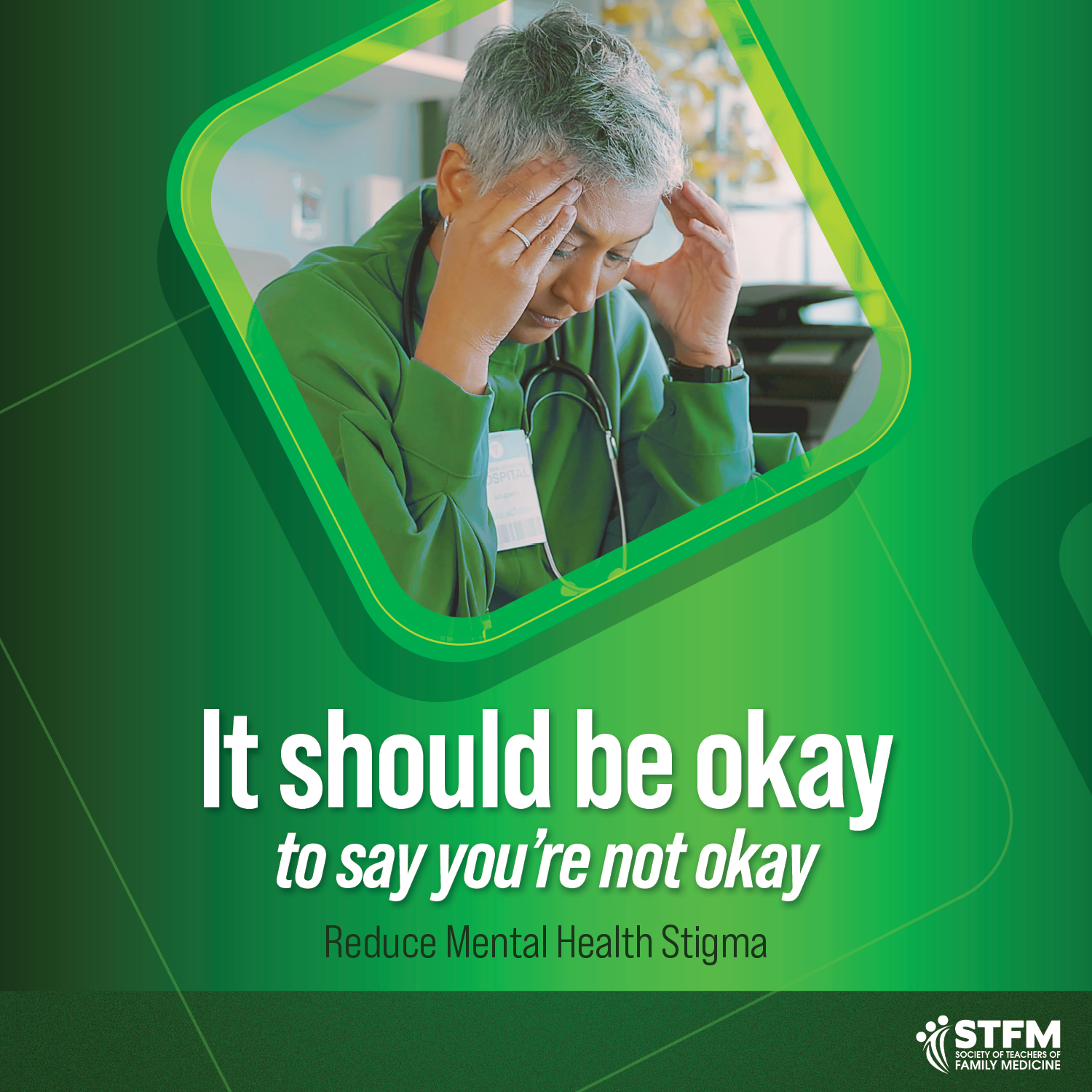Guidance for Program Director Response to Mental Health Questions
Introduction
Residency programs promote learner well-being, burnout prevention and/or treatment, and mental health. The Accreditation Council for Graduate Medical Education (ACGME) Program Requirements make clear that “programs…have the same responsibility to address well-being as other aspects of resident competence” (VI.C). Furthermore, “the responsibility of the program…must include providing access to confidential, affordable mental health assessment, counseling, and treatment, including access to urgent and emergent care 24 hours a day, seven days a week” ( VI.C.1.e).
Despite this much-needed mandate to care for the mental health of trainees, stigma in the medical profession around seeking help for mental health remains significant, in part due to concerns about the potential impact to one’s career. Trainees may ask program directors questions about confidentiality of mental health treatment and/or whether they should have licensing and credentialing concerns if they seek treatment. Program directors may also receive questions from state medical boards about the mental health of trainees applying for licensure. Factual information, resources, and guidance on how to respond to such questions is extraordinarily limited. Therefore, the Society of Teachers of Family Medicine has developed the following information and language to aid program directors in responding to such questions.
Essential Information
- In 2018, the Federation of State Medical Boards (FSMB) adopted new recommendations about physician wellness and burnout, with specific attention to medical board and licensing questions.
- As summarized by Saddawi-Konefka et al in JAMA 2021, the relevant FSMB recommendations for licensing questions about mental health are as follows:
-
- "Only if impaired" (if mental health questions are asked, they are limited to conditions resulting in impairment);
- "Only current" (if mental health questions are asked, they are limited to questions about conditions within the last 2 years);
- "Safe haven nonreporting" (if mental health questions are asked, safe haven nonreporting is offered [ie, allowing physicians to not report diagnoses or treatment history if they are being monitored by and are in good standing with a Physician Health Program]);
- "Supportive language" (inclusion of supportive or normalizing language regarding seeking mental health care).
- Where boards wish to retain questions about the health of applicants on licensing applications, the FSMB recommends that they use the following language:
- “Are you currently suffering from any condition for which you are not being appropriately treated that impairs your judgment or that would otherwise adversely affect your ability to practice medicine in a competent, ethical and professional manner?” (Yes/No)
- As of 2021, only 5 states are inconsistent with any of the 4 FSMB recommendations, which is a considerable improvement from reports as recently as 2017. With that said, only one state is consistent with all 4 recommendations, and many states are adherent to 2 or fewer of the 4 recommendations.
Recommendations for Program Directors
- Mind the "hidden curriculum."
- As a leader, your self-care practices can set the tone for a psychologically safe environment that allows trainees to prioritize their wellbeing. Conversely, your practices may implicitly demonstrate that mental health is not a priority of the program.
- Find your institution’s policy regarding impaired physicians.
- If evaluation and treatment is necessary for a trainee’s personal safety or the safety of their patients, what protocol has been developed internally?
- Look into your state Physician Health Program (PHP) and state medical board.
- What is the relationship between the board and PHP? This structure varies by state.
- When does your state PHP mandate reporting?
- What mental health questions are listed on the licensing application?
- In the absence of knowledge, guidance, or protocol, consider proactively setting up a meeting with a GME resource within your state medical board.
- What questions will be asked if a resident is voluntarily treated for a mental health concern? Do these questions change if they are mandated to seek treatment or if they take a leave from training for a mental health concern?
References and Resources
- ACGME Program Requirements for Graduate Medical Education in Family Medicine. Approved September 17, 2022; effective July 1, 2023. https://www.acgme.org/globalassets/pfassets/programrequirements/120_familymedicine_2023.pdf
- Federation of State Medical Boards. Policy on Physician Illness and Impairment: Towards a Model that Optimizes Patient Safety and Physician Health. https://www.fsmb.org/siteassets/advocacy/policies/policy-on-physician-impairment.pdf
- Federation of State Medical Boards. Policy on Physician Wellness and Burnout, Adopted April 2018. https://www.fsmb.org/siteassets/advocacy/policies/policy-on-wellness-and-burnout.pdf
- Saddawi-Konefka D, Brown A, Eisenhart I, Hicks K, Barrett E, Gold JA. Consistency Between State Medical License Applications and Recommendations Regarding Physician Mental Health. 2021;325(19):2017–2018. doi:10.1001/jama.2021.2275

